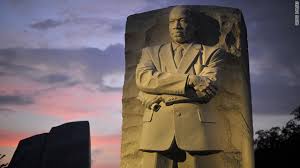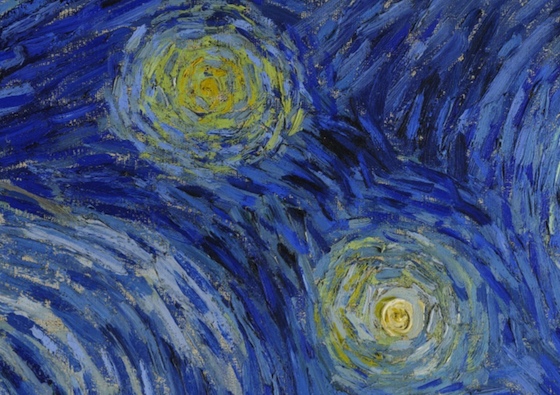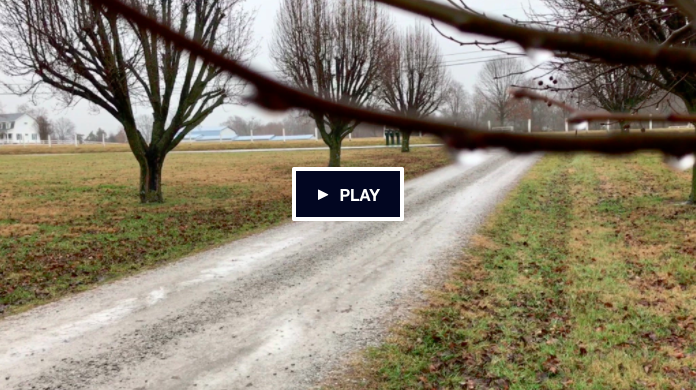 Good Friday
Good Friday Good Friday, 2017
 Friday, April 14, 2017 at 07:03AM
Friday, April 14, 2017 at 07:03AM  Even in suffering and death Jesus is our model. The New Testament accounts of Good Friday are his grace-gift to us, that we might see how a godly man faces injustice, suffering, and the end of life.
Even in suffering and death Jesus is our model. The New Testament accounts of Good Friday are his grace-gift to us, that we might see how a godly man faces injustice, suffering, and the end of life.
Good Friday shows Jesus facing punishment and torture. It does not turn away from the reality of suffering and it reminds us that Jesus, the divine Son of God, was also fully human. He was beaten; he bled. He was whipped; and his flesh opened up. He was stripped naked before others; he felt the shame. He was pierced; he felt the agony. Though weakened and dying from his injuries he spoke to his family, he encouraged those beside him, he cried out to God, and after he was sure is work was finished, then—and only then—did he himself give up his life.
Human suffering is made noble for only one reason: that Jesus, the Son of Man suffered. His holiness forever sanctified all suffering. Jesus did not “taste” human suffering, rather it is we who taste his. Good Friday teaches us that the Son of God wanted no separation between his life and ours. He drank the cup of humanity down to the dregs.
Even in suffering we hear him speak. The Lord used his voice to forgive and to comfort his family. He uses his voice to share his need and discomfort. He uses his voice to connect with one more human soul, the man crucified by his side.
And he used his voice in one final way: Jesus asked God “Why?” and in so doing he gave us permission to do the same. If he can ask God “Why?” so can we. What’s more—just moments later—the same One who felt forsaken and cried out “Why?” then said: “Father, into your hands I commit my spirit.” Jesus moved from asking God why to trusting everything to the Father. In these two statements he taught us a final lesson: even when we do not understand why, our surest choice is to commit ourselves into the loving hands of the Father.”
"Discovering Hope" ~ A New Book ~ Via Kickstarter!
 Wednesday, March 15, 2017 at 09:02AM
Wednesday, March 15, 2017 at 09:02AM Friends: I'm so happy to announce the pre-lease of my next book, Discovering Hope, which is available only through a Kickstarter project:
This Kickstarter runs until March 30th, and I'd be so grateful if you'd take a look at this two-minute video that explains the vision of the book, scheduled for release in September (2017).
Be sure to check out the REWARD LEVELS (scroll down the right-hand side of the Kickstarter page), which include small Group packages for your church or organization, as well as personal rewards and special (small) thank-you's from me.
Peace: Ours to Receive -- and Give
 Monday, February 27, 2017 at 11:12AM
Monday, February 27, 2017 at 11:12AM  In church we say things so often it’s easy to forget they are true. More than true: some liturgical phrases have the power to change the world. Like children reciting E=Mc2 we are unaware of the power on our lips. Consider the simple greeting, “Peace be with you” and the group response, “And also with you.” It’s a simple exchange, offered and returned where God’s people gather.
In church we say things so often it’s easy to forget they are true. More than true: some liturgical phrases have the power to change the world. Like children reciting E=Mc2 we are unaware of the power on our lips. Consider the simple greeting, “Peace be with you” and the group response, “And also with you.” It’s a simple exchange, offered and returned where God’s people gather.
Peace is a gift, ours to receive, and then ours to give. On what was perhaps the darkness night in history Jesus said to his friends, “Peace I leave with you; my peace I give you. I do not give to you as the world gives. Do not let your hearts be troubled and do not be afraid.” (John 14:27) Jesus saw the betrayal and violence that would arrive before sunrise. He saw the hopelessness of midday. He wanted to equip his friends. He offered peace, capable of overcoming troubled hearts and abject fear. The same Jesus who could sleep on a boat during a violent storm said to his friends, "My peace I give to you." His words were not a command, they were a gift. He did not offer Biblical clarity, nor strategic insight. Indeed, what he offered passed understanding. He offered something from another world. He offered the in-breaking of a kingdom characterized by righteousness, peace, and joy. On that sacramental night, the high priest gave not only bread and wine. He gave peace as well.
And yet peace is a strategy as well. Jesus trained us to offer peace: “Whatever house you enter, first say, ‘Peace to this house.’ If a man of peace is there, your peace will rest on him; but if not, it will return to you.” (Luke 10:5-6) Peace is something a disciple carries without benefit of a bag or purse. Peace is a gift we give to anyone who shows hospitality. Peace is the starting point of all ministry, the axis of the good news. Peace is tangible: it is given and received—yet peace has a mind of its own, choosing whether to stay or return.
In the Kingdom of God is peace is more than a platitude. Peace is something other than a high-minded ideal. Peace is how God equips his people. Peace is so real it can be carried and offered to others. What if the antidotes to uncertainty and fear are not knowledge and courage, but peace: freely received, and freely given?
What if peace has been God's gift to you from the very beginning, and he is waiting for you to both receive it and give it to others?
Peace be with you.
Grace Beyond Forgiveness
 Saturday, February 18, 2017 at 05:08PM
Saturday, February 18, 2017 at 05:08PM  Here’s why grace must mean something more than forgiveness:
Here’s why grace must mean something more than forgiveness:
Once there was an abusive husband. He was a rage-aholic, given to fits of rage and, horribly, those moments sometimes overflowed into violence. Like the time he slammed his wife up against the kitchen cabinets. Or the time he slapped her across the face and then, in horror and shame, he ran off to find a quiet place to tremble and cry.
The wife—a Christian—forgave her husband each time he came home. He said (quite accurately), “I don’t know what comes over me.” The wife loved her husband deeply and saw the many good sides of this flawed man, but she lived in fear that the next rage-riot might bring a harm that would not heal. She stayed with her husband because each time he was sincere each time he begged for forgiveness. She knew her duty as Christian was to extend grace.
The only thing she knew of God’s grace was forgiveness. She had been told all her life that she herself was powerless over sin, and God’s grace came to forgive and restore her relationship with God. She was enough of a Christian to understand that if God had forgiven her, she should extend the same grace to others, especially her husband.
She knew the something of God’s grace, but only enough to put her in danger.
It’s God’s grace that forgives and restores. Sweet forgiveness. Sweet—and filled with torment unless there is something more.
If we look at the wife in this story we want to scream, “Get out! It’s not safe!” Any sane Christian understands the woman has no duty to remain at home and risk injury or death because of some notion of grace, expressed as constant forgiveness.
If we look at the husband in this story we see a man trapped in thoughts, emotions, and behaviors that will mean his ruin and the harm of everyone he loves. A sympathetic view of the husband understands he, too, is a tormented soul in desperate need of help—help beyond merely wiping clean his sinful slate. The most gracious thing his wife could do would be to move out and demand that he get the help he needs to overcome his deep anger and pain.
And what of Jesus, the third member of the marriage? We could no more imagine Jesus leaving this husband in his condition than we could imagine Jesus telling a homeless man, “Go your way, be warm and filled” without giving him food and clothing.
Beyond the characters in this simple story lay a larger question: what about us? Would a grace-filled God leave us in the condition he finds us? Would he spend his days reminding us of our shortcomings, demanding again and again prayers of repentance and sorrow? Would the loving Creator wave his hand and say, “you are forgiven, now—go and sin no more” with lifting even one finger to empower us over our sin?
Sometimes an extreme example is necessary to grab our hearts and free our minds. Does God’s grace mean only forgiveness, or is there something more to his antidote for sin? Would God leave us alone in our rage, our addictions, or our isolation? A cold and comfortless God he would be if it were so.
The problem is not with the Father, nor his grace: it is our understanding of his on-going work in our lives. Jesus will not leave us to ourselves any more than he would leave a beggar in the street. Anyone who suggests so misrepresents the true grace of God.
Who could need more than the grace of God? It’s not that we need something more than God’s grace, it’s that we need all of his grace, even the parts we would prefer to ignore. Take a moment and give it some thought: how might God’s grace be available in greater measure than we have known before? I’d love to hear your thoughts.
The Air Around Us
 Tuesday, January 24, 2017 at 03:23PM
Tuesday, January 24, 2017 at 03:23PM  It was sometime during elementary school, but I still remember that moment when I first realized I was surrounded by . . . air! I wasn’t surrounded by nothing, I was surrounded by something. The wonder carried me away: I was swimming through the air. If I raised my arm above my shoulder, it meant the air around me was moving, too.
It was sometime during elementary school, but I still remember that moment when I first realized I was surrounded by . . . air! I wasn’t surrounded by nothing, I was surrounded by something. The wonder carried me away: I was swimming through the air. If I raised my arm above my shoulder, it meant the air around me was moving, too.
My childish imagination kicked in strong: what would it be like to see the air, cool blue and warm red? Was I breathing colors? I saw it with my imagination: inhale a faint celestial blue and exhale rose-colored pink. I could see the air move and mix and blend, or watch it settle, still and motionless, level as a lake. My head was filled with Impressionist masterpieces, the sky swirling with hues and shades too subtle for those in a hurry, but a rainbow for those with eyes to see.
But before long higher education crushed my wonder. In science class I learned about air pressure and wind resistance. The beauty of my childhood faded into the orthodoxy of physics, climate, and chemistry. The atmosphere became one more domain to be studied and measured.
Until one day. (I remember this day as well.) I read the amazing words of Paul as he addressed the skeptical, logical people of Athens, that city where diplomats and philosophers gathered on a hill named Mars, for the God of war. Paul quoted a Greek mystic from centuries before, and I saw the invisible God in much the same way I had imagined how the air must be:
“ . . . For in him we live and move and have our being.” (Acts 17:28)
The child in me was released again. I saw again the living, moving, breathing God! How could I avoid him—and more important: how could I have missed him? When I walk from the bedroom to the kitchen, I walk through God. When I walk into a new situation, God is there, waiting for me. Even the darkness is light to him. He inhabits the day and the night. Intuitively I understood a distinction: everything is not God, but God is in everything. True, the theologians had already told me God was omnipresent, but in doing so they reduced him to a concept I could memorize and recite. But I do not need lifeless facts; I need him.
“He is not far from each one of us.” The vast Creator surrounds us like the air. We breathe the air. It penetrates through our lungs to our very blood, and the blood delivers it to every cell. God himself is the life-giving air. Our vast swirling God is also intimate enough to be with each of us.
I used to think silence meant God was not speaking. Now, in the silence, he’s all I hear. We need not go anywhere to find him, because the slightest shift of our gaze reveals his nearness. If I am alive, if I move, I am encountering him. In every part of my being, he is here. Can you see the air?


